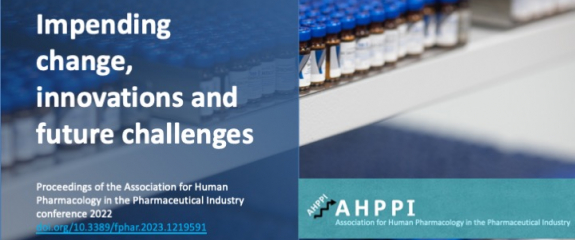The Future of Phase 1 in the UK

It can be argued that Phase I is the lifeblood or new medicines. The UK’s Phase I representative body, the Association for Human Pharmacology in the Pharmaceutical Industry’s (AHPPI’s) annual 1-day meeting, was held in London on 7 December 2022, bringing together stakeholders from a broad range of backgrounds to discuss how current and impending challenges in early phase drug development are inspiring future innovations in the pharmaceutical industry. The meetings proceedings are published today in Frontiers in Pharmacology [1].
Will the UK be able to put the issues of Brexit behind us and take advantage of opportunities arising from industry and scientific developments, inspiring innovation and best practice? It was clear from the event that the UK pharmaceutical landscape is still evolving following Brexit and learnings from the coronavirus disease 2019 (COVID-19) pandemic.
Participants were advised on how, the UK’s clinical community is in a unique position to steer innovation in a meaningful direction. With the continuation of remote forms of working, further opportunities have arisen to support novel practices away from the clinic. However, the meeting also involved discussion around serious concerns over the current performance of UK’s regulatory agency, Medicines and Healthcare products Regulatory Agency and the governments understanding and commitment to the pharmaceutical industry.
Reflecting positively about our historic contribution to drug development, the keynote speaker reflected on clinical development over the past 40 years and how the industry must continue to concentrate on patient welfare. The future of drug development was discussed regarding challenges associated with developing translational gene therapies, and the status of investment markets analysed from a business strategy and consulting perspective.
Patient viewpoint was a core theme throughout the conference with patient-centric blood sampling and decentralized clinical trials providing suggestions for how the industry can save costs and increase efficiency. Moreover, the patient perspective was central to a debate over whether ethics requirements should be the same for oncology patients taking part in first-in-human studies as those for healthy subjects.
Discussions continued around the changing roles of the Qualified Person and Principal Investigators which underpins how sponsors may want to run future trials in the UK. Lessons learned from conducting challenge trials in healthy volunteers and patients were discussed following a presentation from the serving Chair of the COVID-19 challenge ethics committee.
The current state of interactions with the MHRA were also explored. It was considered how the immediate future for the UK clinical trials community is inevitably still linked with Europe; the newly implemented European Medicines Agency Clinical Trials Information System has been met with lukewarm responses, providing a promising opportunity to ensure UK Phase I units continue to play a vital role in global research.
References


